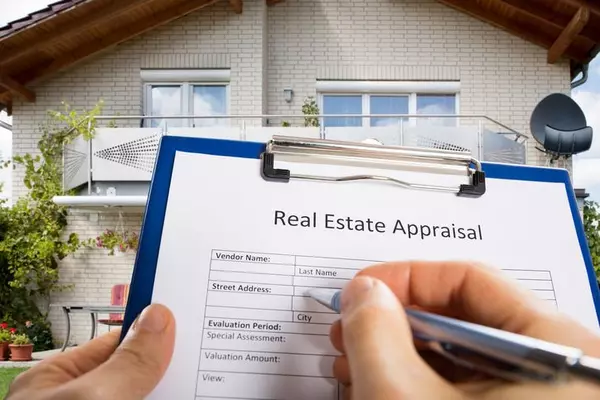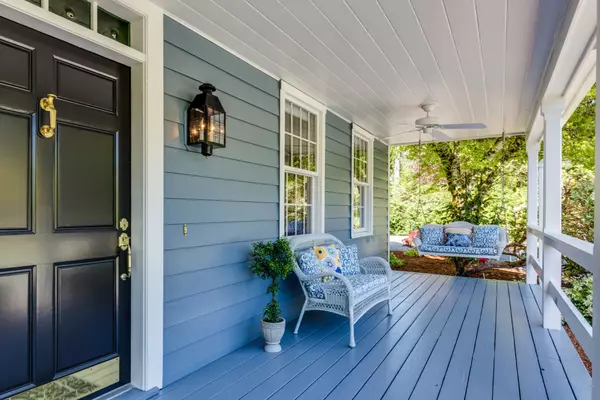Home Inspections 101: Essential Insights Every Homebuyer Should Know
Buying a home is a significant investment; a thorough inspection is essential to protect that investment. This step isn’t just a formality; it’s your chance to uncover hidden issues that could turn your dream home into a costly burden. Understanding the inspection process is vital to St. Augustine’s unique coastal and historic characteristics. Knowing what to expect from a home inspection will help you make an informed, confident decision. Let’s dive into the key things you need to know before closing the deal.
What Exactly Is a Home Inspection?
A home inspection is a comprehensive evaluation of a property’s condition conducted by a certified professional. The goal is to identify potential issues affecting the home's safety, functionality, or value. This step is crucial as a buyer because it offers a clear picture of what you're getting into. In Florida, the buyer typically has 7 - 15 days in most cases to complete all due diligence on the property, including inspections. The inspection period is negotiable and will be set forth in your purchase contract.
Generally, the inspector will assess various elements of the property, including the roof, foundation, electrical systems, plumbing, HVAC, and more. They'll provide a detailed report outlining their findings afterward.
We encourage you to attend the inspection. This allows you to ask the inspector questions in real-time and understand the severity of any issues they discover.
Overview of Common Home Inspections
When buying a home in Florida, several types of inspections are commonly performed depending on the characteristics and features of the property. These inspections include:
- General Home Inspection: A comprehensive assessment of the home's overall condition, covering the structure, electrical systems, plumbing, roofing, and more.
- Termite/Wood-Destroying Organism (WDO) Inspection: A specialized evaluation to identify the presence of insects, fungi, or other organisms that can cause structural damage to a property by feeding on or inhabiting wood. Common culprits include termites, wood-boring beetles, carpenter ants, and wood-decay fungi. Lenders often require a WDO inspection as part of the mortgage approval process to ensure the property is free from infestations that could compromise its structural integrity.
- Mold Inspection: A mold inspection is needed when there are visible signs of mold growth, a musty odor in the home, or if there has been recent water damage, such as flooding or a significant leak. It may also be necessary if the general home inspection identifies areas of moisture intrusion or conditions conducive to mold growth, like poor ventilation or high humidity. Also, a mold inspection is advisable if anyone in the household has allergies, asthma, or other respiratory issues that mold could exacerbate. In some cases, a buyer may request a mold inspection simply for added peace of mind, especially in areas known for high humidity or water-related problems.
- Wind Mitigation Inspection: Often required for insurance, this inspection evaluates how well the home can withstand hurricane-force winds.
- Four-Point Inspection: Typically for homes over 30 years old, focusing on the roof, electrical, plumbing, and HVAC systems.
- Roof Inspection: While a general home inspection includes a basic assessment of the roof's condition, a separate, specialized roof inspection may be needed in addition to the general inspection, particularly if the roof is older, has visible damage, or if the general inspector identifies potential issues that require a more in-depth evaluation.
- Septic System Inspection: This inspection checks the system's health and functionality for homes with septic systems.
- Pool and Spa Inspection: Common in Florida, this evaluates the safety and operational status of pools and spas.
- Radon Inspection: Less common but conducted in areas with higher radon levels.
- Foundation Inspection: A foundation inspection is needed when there are signs of structural issues, such as cracks in the walls or floors, uneven floors, doors or windows that stick or don't close properly, or visible cracks in the foundation itself. It may also be necessary if the general home inspection flags potential foundation problems or if the property is in an area prone to soil movement. Additionally, a foundation inspection is advisable if the home is older, has a history of foundation repairs, or if there has been recent significant water intrusion, like flooding, that could affect the foundation's stability.
- Environmental/Soil Inspection: This inspection assesses soil stability in areas prone to flooding or near wetlands.
- Electrical System Inspection: A detailed check of electrical wiring and panels to ensure they meet safety standards. While a general home inspection includes a basic electrical system check, a more detailed electrical inspection may be needed if the general inspector notes potential issues or if the home has a complex or older electrical setup.
Common Issues Found During Home Inspections
During a home inspection, certain issues frequently arise that buyers should be aware of. While these problems aren’t always deal-breakers, they require careful attention and understanding.
- Moisture & Mold: Moisture problems are a common concern, especially in areas with high humidity. If not managed properly, moisture can lead to mold growth, which poses health risks and can be costly to remediate.
- Foundation Issues: Over time, soil shifting and settling can lead to foundation cracks and other structural concerns. These issues can compromise the stability of the home and may require expensive repairs.
- Roof Damage: Roofs are prone to wear and tear from weather exposure. Missing shingles, leaks, or other damage are common findings that must be addressed to prevent further deterioration.
How to Choose the Right Home Inspector
Not all inspectors are created equal, so choosing the right one is vital. Look for an inspector who is licensed, certified, and has experience with properties similar to the one you're purchasing.
Ask for recommendations from your real estate agent or read online reviews to understand the inspector’s reputation. A qualified inspector will also have proper insurance, including errors and omissions coverage, which protects you if something is missed during the inspection.
Don’t automatically choose the cheapest inspector. This is a case where you often get what you pay for. Investing in a qualified professional can save you thousands down the line.
Understanding the Inspection Report
The inspection report is a comprehensive document that details the inspector’s findings. It’s important to understand that no home is perfect; the report will likely highlight a mix of minor and major issues. The key is to focus on the significant findings that could affect your safety or require expensive repairs.
Pay close attention to the summary section, which typically lists the most critical issues. From here, you can decide whether to negotiate for repairs, request a price reduction, or even walk away from the deal if necessary.
A typical inspection report is around 20-30 pages long, with 25% of homes needing significant repairs or negotiations following the inspection.
How to Leverage Your Inspection Results
Once you have your inspection report, it’s time to strategize. Depending on the findings, you might negotiate with the seller to have repairs completed before closing or ask for a credit to cover the cost of repairs. In some cases, you might decide to walk away if the issues are too severe.
Negotiation is a fine art. Work closely with your real estate agent to craft a response that protects your interests without jeopardizing the deal. Remember, the goal is to get the best possible outcome, whether that’s a lower price or a fully repaired home.
Prioritize negotiating for repairs that affect the home's structure, safety, or functionality. Cosmetic issues, while annoying, can often be tackled later on.
The Cost of a Home Inspection
Home inspection costs typically range from $300 to $500, with prices varying based on factors like the size and age of the property. Additional inspections, such as mold, termite, or radon inspections, can increase the total cost but are often worth the investment to uncover potential issues that may not be visible during a standard inspection.
Think of the inspection fee as an essential investment in your future home. It’s a small price for peace of mind, potentially saving you thousands of unexpected repairs later.
Nationally, the average home inspection cost is around $350, though this can fluctuate depending on local demand and specific property conditions.
Final Walkthrough: The Last Chance to Double-Check
After the inspection and any agreed-upon repairs are completed, a final walkthrough is your last opportunity to ensure everything is in order before closing. This step is crucial to confirm that the home’s condition hasn’t changed and that any agreed-upon repairs have been satisfactorily completed.
Take your time during this walkthrough. Bring the inspection report with you and verify that all listed issues have been addressed. This final step guarantees that you're getting exactly what you agreed to purchase.
Use a checklist during the final walkthrough to ensure nothing is overlooked. If you notice any unresolved issues, address them before signing the final paperwork at closing.
Conclusion
A home inspection is essential to the home-buying process, offering invaluable insight into the property’s condition and potential future challenges. By understanding the inspection process, choosing a qualified inspector, and knowing how to leverage the results, you can make a confident and informed decision on your purchase. Don’t skip this critical step; your future self will thank you. Don't hesitate to reach out if you need help navigating the home-buying process or selecting the right inspector.
Categories
Recent Posts

5 Things to Know Before Relocating to St. Augustine

Home Inspection Preparation: What St. Augustine Sellers Need to Know

Why January and February Are the Best Time for a Crowd-Free Visit to St. Augustine, FL

Understanding the Home Appraisal Process in St. Augustine, FL

Florida’s Most Enchanting Forests to Explore

How to Highlight Your Home’s Best Features for St. Augustine Buyers

Moving to St. Augustine for Work: Best Areas for Young Professionals

Top 10 Improvements to Increase the Value of Your St. Augustine Property

The Most Instagram-Worthy Holiday Spots in St. Augustine

Making the Switch: Renting to Owning

